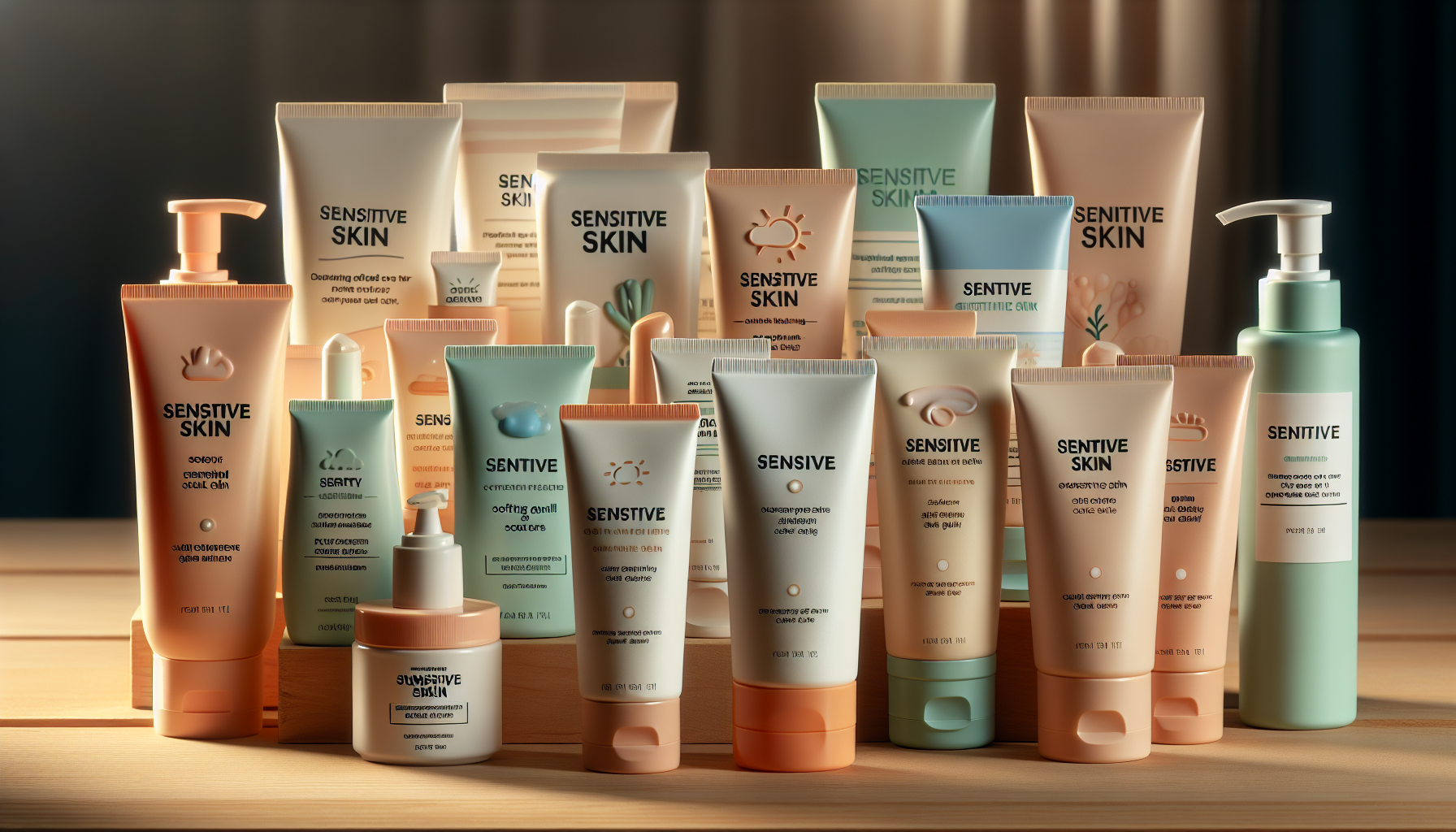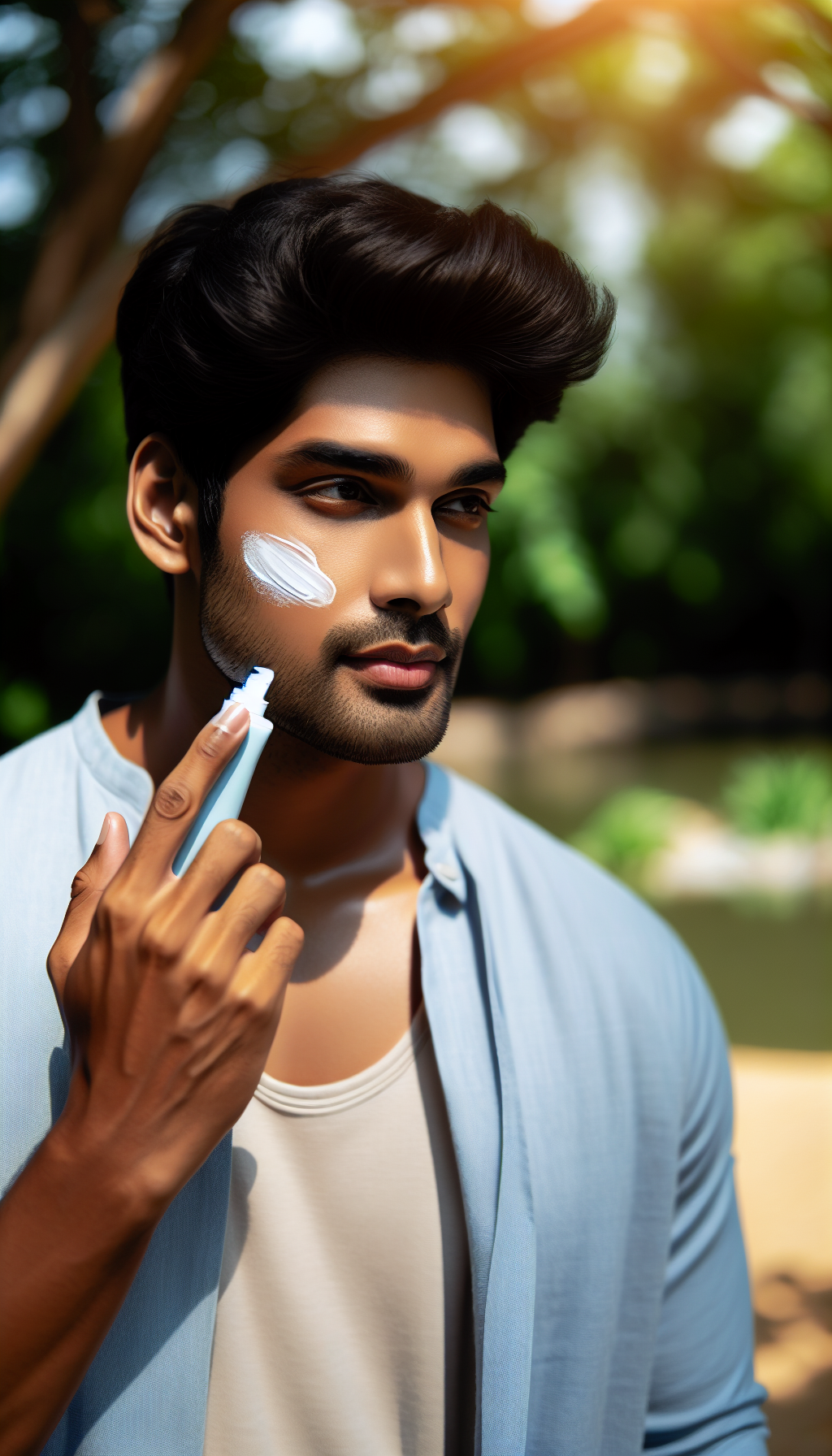Sensitive skin requires special attention, especially when it comes to protection from the sun’s harmful ultraviolet (UV) rays. Choosing the right sunscreen is crucial to ensure that your skin is shielded without causing irritation or adverse reactions. This comprehensive guide is designed to help individuals with sensitive skin select a sunscreen that offers effective protection while maintaining skin health.
Understanding Sensitive Skin and Sun Exposure
Sensitive skin can react negatively to various environmental factors, particularly UV radiation. Sun exposure can lead to sunburn, accelerated aging, and an increased risk of skin cancer. For those with sensitive skin, the consequences can also include irritation, redness, and discomfort. It’s important to understand that sensitive skin needs sunscreens that are not only protective but also formulated to avoid triggering sensitivity.
The Importance of Broad-Spectrum Protection
When selecting a sunscreen, it’s imperative to choose one that provides broad-spectrum protection. This means it shields the skin from both UVA and UVB rays. UVA rays penetrate the skin deeply and are primarily responsible for premature aging, while UVB rays cause sunburn. A broad-spectrum sunscreen will ensure comprehensive protection, which is vital for maintaining healthy skin.
Key Ingredients to Look for in Sunscreen for Sensitive Skin
For those with sensitive skin, the ingredients in sunscreen can make a significant difference in how the skin reacts. Here are some ingredients to look for:
Mineral Filters
Mineral sunscreens contain active ingredients like zinc oxide or titanium dioxide, which are less likely to irritate sensitive skin. These ingredients work by sitting on top of the skin and reflecting UV rays away.
Niacinamide
Niacinamide, also known as vitamin B3, is known for its soothing properties and can help reduce redness and irritation, making it a beneficial ingredient in sunscreens for sensitive skin.
Hyaluronic Acid
This ingredient is a hydration powerhouse and can help maintain the skin’s moisture barrier, which can be compromised by sun damage.
Ingredients to Avoid
Certain ingredients can be problematic for sensitive skin. It’s best to avoid sunscreens containing alcohol, fragrances, and preservatives like parabens, which can be irritating or cause allergic reactions.
Sunscreen Application Tips for Sensitive Skin
Applying sunscreen correctly is just as important as choosing the right product. Here are some tips:
- Apply Generously: Use enough sunscreen to cover all exposed skin. Most adults need about one ounce — enough to fill a shot glass — to fully cover their body.
- Reapply Regularly: Sunscreen should be reapplied every two hours, or more often if you’re swimming or sweating.
- Test Before Use: Perform a patch test by applying a small amount of sunscreen to an inconspicuous area of skin to ensure no adverse reaction occurs.
The Role of Physical Sunscreens in Sensitive Skin Care
Physical sunscreens, also known as mineral sunscreens, are often recommended for sensitive skin types. They contain active mineral ingredients, which act as a physical barrier to reflect UV rays away from the skin. These formulations are less likely to cause irritation and are also better for those with heat-activated skin conditions, as they deflect heat from the skin.
Additional Protective Measures
Besides sunscreen, there are other ways to protect sensitive skin from the sun:
- Wear Protective Clothing: Long-sleeved shirts, pants, and wide-brimmed hats can provide additional protection.
- Seek Shade: Avoid direct sunlight, especially during peak UV radiation hours, typically from 10 a.m. to 4 p.m.
- Use Accessories: Sunglasses with UV protection can shield your eyes and the delicate skin around them.
Understanding SPF and Its Relevance to Sensitive Skin
SPF, or Sun Protection Factor, measures how well a sunscreen will protect skin from UVB rays. For sensitive skin, a higher SPF may provide better protection, but it’s essential to find a balance to avoid unnecessary ingredients that could cause irritation. SPF 30 to 50 is generally sufficient for most sensitive skin types.
When to Seek Professional Advice
If you have extremely sensitive skin or a skin condition like eczema or rosacea, it’s wise to consult with a dermatologist before choosing a sunscreen. They can recommend products that are less likely to cause flare-ups.
External Resources for Further Information
For those looking to delve deeper into the specifics of sunscreen ingredients and their effects on sensitive skin, the following resources may provide valuable insights:
- Skin Cancer Foundation’s guide on sun protection
- National Eczema Association’s recommendations for sunscreens
- FDA’s information on sunscreen
Related Avix Health Articles
In addition to understanding sunscreen selection, maintaining healthy skin involves various other factors. Consider exploring these related Avix Health articles:
- Learn about the role of hydration and oil production in skin health in "The Relationship Between Hydration and Skin Oil Production."
- Discover the significance of antioxidants for your skin’s appearance in "Dietary Antioxidants and Their Role in Skin Appearance."
- Gain insights into managing stress for better skin health by reading "A Guide to Managing Stress for Better Skin Health."
Choosing the right sunscreen for sensitive skin doesn’t have to be a daunting task. By understanding the ingredients that benefit sensitive skin and those to avoid, along with proper application techniques and seeking professional advice when needed, you can enjoy the sun safely without compromising your skin’s health.



